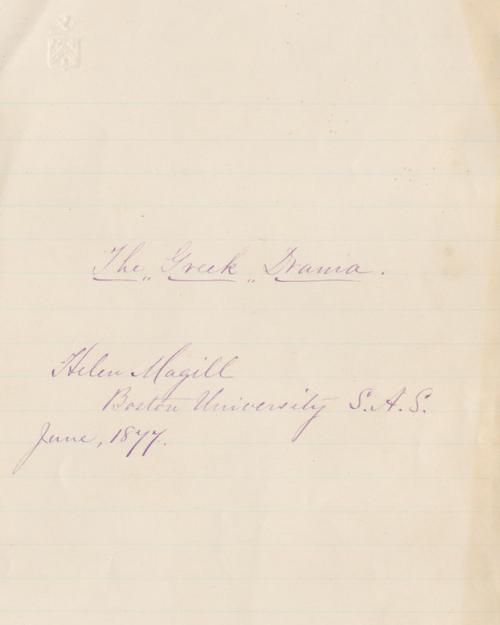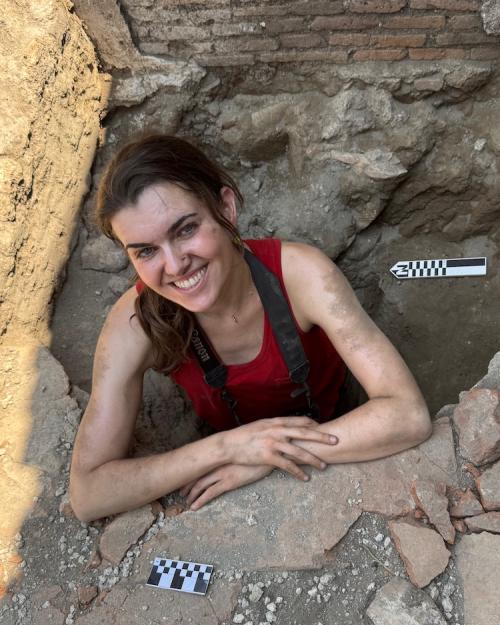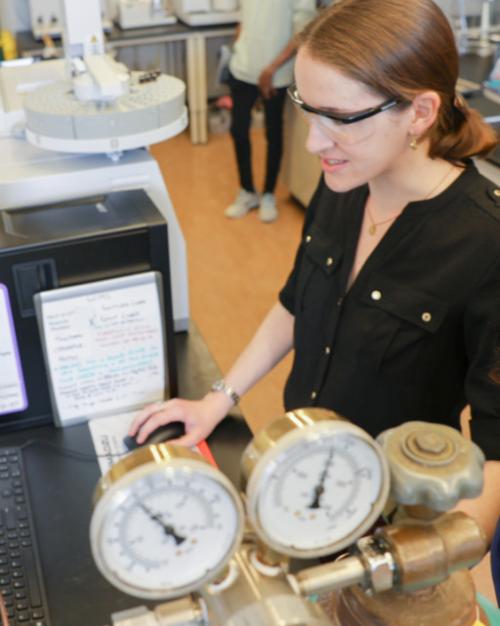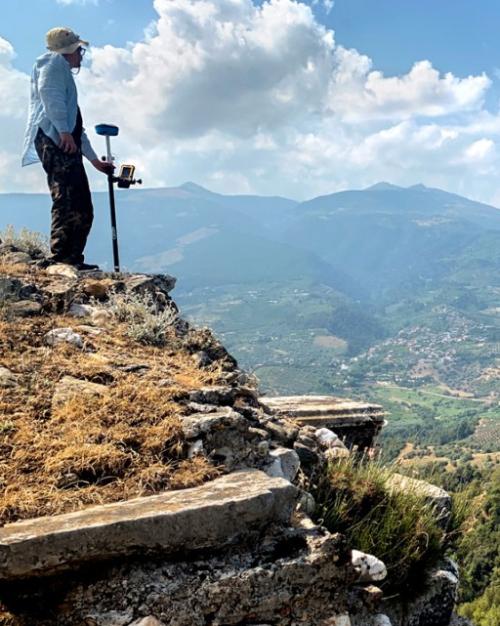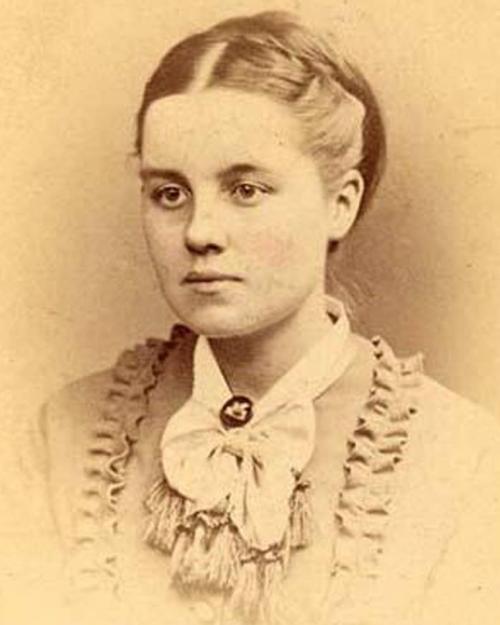In Cornell circles, Helen Magill is known for marrying, in 1890, Andrew Dickson White, the university’s first president. But years before they met, Magill made history in her own right, becoming the first woman to receive a PhD in America – from Boston University in 1877. Her dissertation in Classics was found in 2018 in the Cornell Library Rare and Manuscript Collections.
“The manuscript is relatively brief, which is not at all unusual for dissertations of that period, in America or elsewhere,” said Constanze Güthenke, professor of Greek literature in the Classics faculty of the University of Oxford. “But the question raises the related issue of how much material is visible or invisible in the archives of American classical scholarship in general.”
In the 2022 Townsend Lectures Sept. 7, 9, and 12, Güthenke will bring to light untold stories of the Classics field during three talks on the theme “American Classical Scholarship: Histories of Disorientation.” Hosted by the Department of Classics in the College of Arts and Sciences, the Townsend Lectures all begin at 4:30 p.m. in Kaufmann Auditorium, G64 Goldwin Smith Hall. All are open to the public, with receptions following.
“From early on, classical scholarship in America looked to Europe and looked at itself through Europe as a point of reference, creating a complex triangulation between modern America, contemporary Europe, and the ancient world,” said Verity Platt, professor of classics in the College of Arts and Sciences.
Helen Magill White’s story is an important part of Güthenke’s overall argument about the challenges of studying Classics in 19th century America, especially for those who were not wealthy, white and male, Platt said.
At the time Helen Magill received her PhD, most of her male peers keen on becoming professional scholars would have studied for higher degrees in Europe, especially in Germany, Güthenke said. Instead, Magill studied for a second degree in Cambridge, England, where she was the first American woman to sit exams in Classics.
“Unlike some of her female contemporaries, Magill did not go on to a successful teaching career in the women’s colleges,” Güthenke said. “Her particular circumstances and experiences offer an opportunity to reflect on what constitutes academic success, within changing institutional conditions.”
The 2022 Townsend Lectures will attempt histories of disorientation drawing on published scholarly works and unpublished writings, said Platt. The larger aim is to reflect on disciplinary histories of discomfort and on reoriented disciplinary history in parallel.
The history of the field impacts its current form: who’s included and what’s studied, said Emily Shanahan, a doctoral student who researched the Helen Magill White papers to prepare the lectures.
“Personally, I’ve had difficulty finding resources on rape culture and sexual violence in the Homeric epics. People simply haven’t written much on the topic – I can only assume because women and other groups have been prevented from participating fully in the field,” Shanahan said. “But this is a huge omission, considering that the Iliad is about Agamemnon and Achilles’ argument over an enslaved woman named Briseis, and who has the right to her body. The history of Classics has an afterlife in the violence that’s ignored and the stories that don’t get told.”
In addition to Magill, Güthenke will compare and contrast the scholarly careers of Basil Gildersleeve and William Scarborough.
Gildersleeve is now regarded as a figure whose politics are deeply problematic, Platt said. From an established Southern family, he was a passionate defender of the Confederacy. He was a professor at the University of Virginia and Johns Hopkins University and a leading figure of the newly formed discipline of Classics.
In contrast, Scarborough was born into slavery in Georgia. He received degrees from Oberlin College and went on to be a teacher, classical scholar and eventually president of Wilberforce College.
“Gildersleeve and Scarborough could prima facie not look more different from each other,” Güthenke said. “At the same time, both are part of a moment in which the role of specialist research was debated, as much as it was fluid, and where some unexpected commonalities emerge in addition to the imbalances that separate them.”
Since 1985, the Prescott W. Townsend Memorial Fund has supported annual lectures given by scholars of international reputation. The lectures, revised for publication, are published by Cornell University Press in the series Cornell Studies in Classical Philology.

